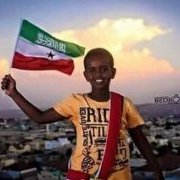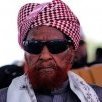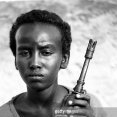Leaderboard
Popular Content
Showing content with the highest reputation on 08/09/2020 in all areas
-
3 pointsWith no visible means of support The unexpected success of Somaliland By Kieran Pender For some time now, our global landmass has been neatly divided into the 193 member states that make up the United Nations. Cartographically, the world has remained remarkably static in recent years, with just one new member admitted to the club of nations in the past decade (South Sudan) and only three in the decade before that. This stasis belies a convenient fiction, however. In a number of places, the cartography does not reflect the reality on the ground. Some examples are prominent – Palestine, say, which is recognized by over two-thirds of UN member states but lacks full acceptance on the international stage. Google Maps uses a dotted line to delineate its border with Israel. Northern Cyprus gets the same treatment: it is recognized only by Turkey. So too does Kosovo, which has received over a hundred diplomatic recognitions. Such cartographic oddities multiplied in the 1990s, during a wave of violent secessionist conflict. In the Caucasus, Abkhazia and South Ossetia broke away from Georgia following the dissolution of the Soviet Union. Georgia claims that both are now Russian-occupied; most locals disagree. Transnistria is a narrow sliver of land between Moldova and Ukraine, which seceded around the same time, as did Nagorno-Karabakh in Azerbaijan. Elsewhere, Iraqi Kurdistan, Western Sahara and Somaliland have similarly found themselves with some degree of sovereignty but without international recognition: “square pegs in a world of round holes”, according to the politics professor Deon Geldenhuys. These de facto nations have all the trappings of statehood – passports, currency, flags, elections, parliaments – but they are routinely ignored by the global community. Isolated from international institutions, formal trade networks and political blocs, such pariah territories have been routinely dismissed – including by institutions such as the European Paliament – as war-torn badlands and hotbeds of organized crime. They were also assumed by many to be transitory, and thus received little scholarly attention. But in time it became apparent that they were not going anywhere. Almost three decades since many of them were spawned, they persist – real on the ground, invisible on the map. In When There Was No Aid: War and peace in Somaliland Sarah Phillips considers a particularly peculiar example. Once a British protectorate, Somaliland enjoyed a fleeting week of independence in 1960 before merging with its southern neighbour, Italian Somaliland, to form Somalia. It was an unhappy union. Famine and oppression from the south ultimately precipitated civil war, and in 1991 (northern) Somaliland unilaterally declared independence. Most separatists have had a patron state to provide support and limited recognition. Abkhazia, for example, was recognized by Moscow in 2008 after the Russia–Georgia war – and diplomatic acknowledgement followed from several states allied with the Kremlin. The Somalilanders had no such fortune; pleas for international endorsement of their independence fell on deaf ears. Hence the title of Phillips’s book. While most post-conflict zones benefit from considerable international assistance, Somaliland has received barely a penny. International isolation and negligible aid were an inauspicious start for this fledging statelet, particularly as billions of pounds and swarms of international advisers poured into Somalia. Yet for all this assistance Somalia remains to this day racked by violence, piracy and terrorism. Somaliland, meanwhile, has emerged as a beacon of hope in the Horn of Africa – stable, relatively democratic and broadly functional. For Phillips, an expert on international development, Somaliland therefore provides a curious example of development without intervention. “For all the doubts raised about the effectiveness of international assistance in advancing peace and development,” she writes, “there are precious few examples of developing countries that are even relatively untouched by it.” As a result, it is ordinarily very difficult to consider counterfactuals, which question whether aid is actually helpful. Somaliland’s example offers partial clues. Its peace was “painstakingly negotiated under the trees at dozens of clan-based conferences”, while Somalia’s was “negotiated in five-star hotels funded by the United Nations”. Only one endured. When There Was No Aid is the result of extensive fieldwork. Phillips interviewed hundreds of people across a range of fields to understand how Somaliland secured stability while its southern neighbour remained mired in violence. She has drawn on this impressive research alongside other scholarly literature to produce a compelling account of Somaliland’s path to peace. While it is evidently written with an academic audience in mind – the book is grounded in theory and has an exhaustive reference list – When There Was No Aid is lively and accessible. Phillips makes a compelling case for the unexpected positives of non-recognition. As one minister tells her, the country’s isolation has been a “blessing in disguise”. Because the peace process was free from “institutional endpoints favored by international donors”, Somalilanders, the author tells us, “had the freedom to cherry-pick from local and international institutional governance models and to experiment”. This enabled the country to fashion innovative models blending Western governance with local customs. A system of clan-based proportional representation (the beel) was adopted, while an unelected house of elders (the Guurti) was integrated alongside a democratic two-tier legislature, presidential executive and an independent judiciary. While these structures are not faultless – Phillips suggests that the once influential Guurti has lost local legitimacy – their endurance stands in contrast to Somalia’s abiding governance crisis. Phillips’s most original contribution comes through her observation that stability has been maintained largely through words rather than actions. She suggests that while Somaliland’s institutional capabilities remain limited, and open to corruption – “the law here is fifty US dollars”, says one security official – the “othering” of Somalia’s continuing violence and the desire for international recognition have incentivized peace. Somalilanders, she argues, “have responded to institutional weakness by discursively compensating for it on the level of identity and by asserting their ability to maintain peace without strong institutions on the basis of that identity”. Her evidence for this is persuasive. She points to a contested presidential election in 2003, when many observers expected violence. Instead, the chair of the defeated party, Kulmiye, which had lost by just 0.01 per cent of the vote, publicly rejected the idea of forming a parallel government, saying: “I won’t go down that road, because no one can guarantee that we won’t end up like Mogadishu”. Phillips cites the absence of piracy in Somaliland as another measure of its success, putting this again down to the social consensus. As a local analyst tells her: “the population is alert to what the international community needs to see to recognize Somaliland. They want to protect that”. Phillips is also a shrewd detective. She highlights the pivotal role played by female activists, who can “cross clan lines” to facilitate dialogue because they hold dual clan identities – familial and matrimonial. And she identifies the centrality of one local boarding school, Sheekh Secondary – privately funded but non-fee-paying – to the country’s political make-up: of the fifty or so most influential political actors during the 1990s, fully half had attended the small, merit-based, cross-clan institution. One graduate tells Phillips that the alumni network functioned “like a secondary tribe”, aiding political cohesion during the turbulent decade. While some observers, such as the ethnologist Markus Hoehne, have called Somaliland a “sui generis” case, with little for us to learn from, Phillips disagrees. The country’s experience may have been idiosyncratic, but “this does not mean the underlying drivers of its trajectory do not have broader relevance”. In her eyes, Somaliland indicates that development institutions have been asking the “wrong question” when it comes to external intervention. “Aid matters less than we think it does because it does not alter the asymmetries that make it difficult for countries in the Global South to extract themselves from violence and poverty.” These observations are astute, and it thus seems a shame that they were crammed into the nine-page conclusion and not further explored. Today, Somaliland is no longer quite so isolated. The UN has twenty-two different agencies operating there, under the guise of its wider activities in Somalia, while the British and Danish governments have found ways to channel assistance indirectly. The United Arab Emirates is a major commercial investor and has also cooperated on security matters. In June, the presidents of Somalia and Somaliland even met in Djibouti for peace talks. “Somaliland is at a critical juncture”, Phillips observes – even if it is not yet on the map. Kieran Pender is an Australian writer and lawyer based in London. He has reported extensively from Abkhazia for the Guardian, Al Jazeera and Monocle
-
2 pointsThe tweet above has been confirmed to have been personally signed by 'JW' which is the initials of Foreign Affairs Minister of Taiwan. First Somaliland representative to Taiwan arrives [Somaliland's man in Taiwan Ambassador Mohamed Omar Hagi Mohamoud] First Somaliland representative to Taiwan arrives - Focus Taiwan FOCUSTAIWAN.TW Taipei, Aug. 9 (CNA) Foreign Minister Joseph Wu (吳釗燮) on Sunday welcomed Somaliland's first representative who arrived in the country Friday in preparation for the upcoming opening of the self-claimed...
-
2 pointsKol Hadii Somaliland China iyo Taiwan ka dhex kaluumaysanayo... Ethiopia iyo Egypt waa walk-in-the-park.:D
-
2 pointsEthiopia and Somaliland have strong ties. It's because of our shared borders. Shared peoples the current admin of abiye Ahmed might have other policies. But his stay in Ethiopia might come to an end soon. Having said that Ethiopia was never interested in a recognized strong Somaliland next to its border. But they couldn't ignore the facts on the ground in Somaliland. Since the time of the late meles zenawi. Somaliland knows Ethiopia very well its interest its long term interest. As for the koonfurians they are just sad they have been killing each other for 30 some years instead of fixing that. They go on and on about why Somaliland is part of their wartorn Somalia.
-
2 pointsIt is possible that Somaliland's Rep to Taiwan may have audience with Secretary Alex Azar when he visits Taiwan soon.
-
2 pointsThat's just nonsense Mogadishu was build by the Italians. And because it served as the capital for a few decades the rest of the country was neglected. The koonfurians have abused the term Somaliyeed. Ummad Somaliyeed or qaranimo Somaliyeed. Non of that is true.
-
2 points
-
2 points
-
2 points
-
2 pointsSomaliland's Representative to Taiwan has landed in Taipei.
-
1 point
-
1 pointBefore that the head of intelligence in Mudug and chief traffic enforcement officer. They are targeting the top leadership. If you can not protect the generals how could you the save the masses.
-
1 pointWay ka gundheertay awoowe. Reer Somalia murugo iyo ciil ayay u tahay guusha Somaliland. Laakin waxba kama qaban karaan. Inay maanta Ethiopia ka sugaan inay 'midnimo' u ilaaliso waa jar-iska-xoornimo tii ugu darnayd. Qofku kolka uu saaxib la noqdo khiyaali waa sidaa oo kale.
-
1 pointAwoowe, Somaliland website will report all news on Somaliland both negative and positive. But when you see Reer Koonfur websites, they mostly report what they perceive as negative news on Somaliland. This also goes for the desperate clan based websites who are against Somaliland. For example, the day Chinese ambassador met with Cheeseman in the Villa AMISom basement, they reported that news all over social media. Our beggar from Baydhabo was also quick to predict 'calamity of epic proportions'. Soon when they realised how Somaliland is handling this and winning, they have all crawled back to their miserable places. These news organisations and social media people seem to wank on what they percieve as negative news but quickly disappear when it comes to following up on the same story.
-
1 pointDon't forget Somaliland media is also reporting this news
-
1 pointIsaaqland ma aqoonsanin | allsanaag ALLSANAAG.COM All Sanaag: Isaaqland ma aqoonsanin. Link below... Isaaqland ma aqoonsanin | allsanaag ALLSANAAG.COM
-
1 pointSomaliland ideological political aspirations has been accomplished for the most part 95 percent . There is absolutely no challenge coming from wartorn Somalia. Apart from crying to other nations they rule Somaliland. When infact we know they don't even rule their own supposed capital. Wake up smell the coffee.
-
1 pointOf course. I would not judge someone's capacity or knowledge by how he speaks a foreign language. During the British empire in India, someone who speaks Urdu, Arabic and well versed in theology and other social sciences was considered illiterate since he did not speak English. THe most advanced nation like Korea, Japan, and even Russia and Turkey barely speak any English in their technical schools, yet they excel.
-
1 point
-
1 pointMMA ishaad ka tuurtay. Oodwayne you are always lashing out because you are suffering from jeegaanta domination after being loyal foot soldier for SNM. I am sure one day you will see the light as your cousin Saalax did and join Somaliwayne. With Turkey training Somali army, it is not far fetched when Amison will be removed from Somalia and alshabaab defeated.
-
1 pointXaaji, I will give it to you, we put ourselves in bad position thanks mostly to the elites of the two families running the ountry since 60s. But there are no Somalis without us (Somali proper) or without Xamar.
-
Newsletter









